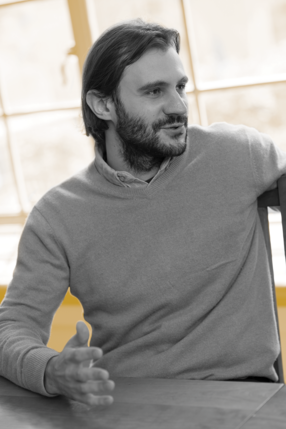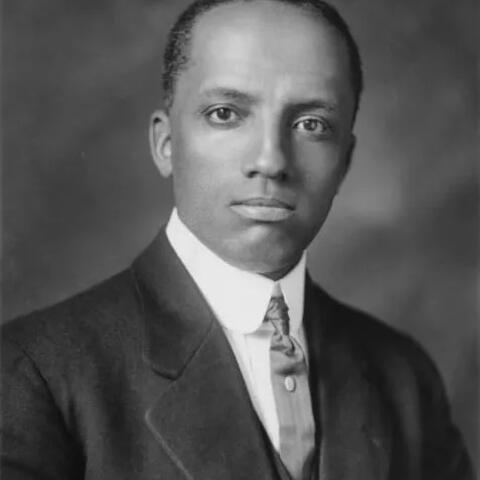At a Crossroads: The Future of the European Union
Rise of Populist Movements Could Threaten the European Project

FORMER AND CURRENT GRADUATE STUDENT AFFILIATES OF THE MINDA DE GUNZBURG CENTER FOR EUROPEAN STUDIES AT HARVARD SHARE THEIR PERSPECTIVES ON THE EUROPEAN UNION
Danilo Mandić, PhD ’15, Sociology
College Fellow in the Department of Sociology
CES Local Affiliate
Colleen Driscoll, PhD student in the Department of Government
CES Graduate Student Affiliate and Co-Chair, Populism, Nationalism and Radical Politics Study Group
Jonathan Mijs, PhD ’17, Sociology
CES Graduate Student Affiliate and Co-organizer of the Seminar on Social Exclusion and Inclusion in Europe
Following the devastation of the Second World War, European nations made a commitment toward economic and political integration and cooperation in the hopes that this convergence would bring stability to the Continent. Today’s European Union with its 28 member states appeared to be the realization of a vision that was established by the Treaty of Rome in 1957 when the six founding members—Belgium, France, Germany, Italy, Luxemburg, and the Netherlands—created the European Economic Community (EEC) that was to bring an “ever closer union” of the peoples of Europe.
With the financial crisis of 2008, however, the term “crisis” became synonymous with Europe and challenged its ability to manage issues effectively and equitably among member states. The political winds also began to shift as populist and nationalist parties became more prominent on the political stage across Europe. The Brexit vote of 2016 was the first manifestation of the changing tide as it opened the door for the United Kingdom’s exit from the Union. The election of President Trump in the United States deepened concerns over the post-war order and security.
These developments, among others, have called into question the future of the European Union. Can the European Union successfully manage the persistent debt crisis and address populist concerns? Or will integration break down under the weight of the economic, political, and security challenges?
Colloquy sat down with former and current graduate student affiliates of the Minda de Gunzburg Center for European Studies at Harvard to gain perspective on the challenges facing the European Union and the opportunities to address and solve them.
The UK’s Brexit vote seems to be a symptom of a larger issue within the European Union. What are the pressures leading some countries to consider leaving the EU?

Colleen Driscoll: One of the major pressures is, of course, immigration, from inside and outside the EU. The Brexit vote, for example, raised issues of border control, with Leave voters wanting to deny entry to the UK for people that they don’t see as benefiting their economy or culture. They are driven by economic concerns, by a backlash against the de-industrialization of Western economies more broadly, and by xenophobia, fear of terrorism, and fear of Islamization of the West, as we see in other countries in Europe. So immigration is a key issue, as well as the idea that leaving Europe gives a country complete control over their national identity and over who may enter national territory.
Danilo Mandić: I agree with that. The simplest answer is that when times are bad, voice and loyalty become more difficult, and exit becomes more appealing.
Jonathan Mijs: Voice is something that many member states never believed they had. The EU hasn’t really built that voice or strengthened their democratic legitimacy. Many populations across Europe feel they are facing foreign forces who are making decisions that impact their lives. But also they feel impacted by the economic forces of globalization brought in by the European Union, and by the foreign bodies, foreign tongues, and foreign looks brought in by immigrants. For people who themselves are facing hardship, who are seeing their prospects and their ambitions unrealized, that is a threat, and they are calling for, if not national autonomy, then for bringing back a sense of control over their lives—even if that is an illusion.
So the movement of refugees, for example, as well as legal immigration, would feed into their fears and their desire for change?
Mandić: Sure. But I don’t think there’s any law of nature that says it has be perceived that way.
Aggressive propaganda campaigns have arisen across Europe, especially in Eastern Europe. The Visegrád countries, led by Hungary, Slovakia, and the Czech Republic, have been absolutely disgraceful. Brexit data shows that migration was by far the most important concern. In a word cloud representing Leave voters, the most prominent word was immigration, a simplistic reference to fear of an Arab or Muslim terrorist threat. The Remain camp did very little to address this in a compelling way, and in many ways it played into fears and xenophobia. This anti-migrant sentiment is very robust. But why not ask the question: Could migration be an opportunity? Nobody asks that. Nobody dares ask that.
This anti-migrant sentiment is very robust. But why not ask the question: Could migration be an opportunity? Nobody asks that. Nobody dares ask that. - Danilo Mandić, PhD '15
From an inequality perspective, are those in the center more affected by inequality, which leads to the rise in their feelings about immigration?
Mijs: For one group of people, opening borders have provided easier travel and cheaper phone plans. They applaud the market forces that have helped them, and they would like to see these benefits increase. Many are worried about how, with the Brexit, the mobility they now take for granted may reduce in the coming years. These are people who generally have good jobs, who have benefited from the forces of globalization and the opening up of the markets.
And then there’s a group of people who, in a very real sense, haven’t benefited or perceive that they haven’t. They have seen their wages drop because of increased competition. They have not, or feel they have not, benefited from the markets opening up. They do not appreciate increased mobility because that hasn’t and will never be on their mind. In fact, they feel threatened and are worried by the fact that the communities they live in are changing in nature away from what they’re comfortable with. This divide is increasing in Europe as it is across the world, leading to polarization—economic polarization as well as polarization of their sentiments—which they translate into politics.
The EU is stuck between two goals: increasing the number of member states and developing a deeper and more meaningful integration. - Colleen Driscoll, PhD student in government
In the United States, many voted for Donald Trump because of lowering wages and job insecurity. Are we seeing something similar going on in Europe?
Driscoll: Yes, definitely. I believe that this relates back to de-industrialization and to the lack of stable, steady jobs that people kept throughout their lives. It’s no longer the case that a high school diploma, for example, assures a lifetime job in the local factory. Job prospects are more precarious, and workers now compete for jobs with individuals from other EU countries or with immigrants from outside the EU—or they might perceive that scenario as a threat. They feel as though their livelihood is being taken away from them by forces they can’t control.
Mijs: These are legitimate fears. Careers are much less stable. Expectations are bleaker, leading many to oppose the European project’s opening up of markets in a rational and well-informed way.

Mandić: That’s extremely important. I’m always struck by the attitudes around globalization and the opening up of borders, which allows for the movement of stuff and for the movement of people. In principle, you would expect tremendous advantages and some disadvantages. But the media reports on the disadvantages of moving people around, whereas the movement of stuff is considered wonderful. Goods should move across borders. But no one, based on the same principles of economics, is willing to admit that the movement of people could be considered economically advantageous. You only hear about the negative aspects of moving people around.
Driscoll: Yeah, definitely. In France, for example, the right wants to portray France as a sovereign nation that will care for its citizens. The right’s natural focus on sovereignty and economic protectionism in France is different from right-wing parties in other countries.
Mijs: It probably is a special case in France, although you see a similar coming together of ideas in Holland, where you have Wilders advocating to rid the country of foreigners and increase support for the elderly and for the poor. Wilders began his political career as an economic liberal in what is now the centrist government party, and he left that party to form his own. He adapted his political positions into an effective form of protectionism, a belief he shares with the Socialist Party in the Netherlands. Even though the parties are at opposite ends of the political spectrum, they agree on their positions more than one would expect.
A broader trend in many countries is the erosion of social democracy, where we naturally find the defenders of the working class. Many in these countries, particularly the working class, have grown unconvinced that this system of government can address their issues of concern, in large part because it is connected to the European Union as a neo-liberalist and free market project. Perhaps for a while they believed it was possible. But they can no longer.
Looking forward, is it inevitable that the European Union could be dismantled or are there things the European Union could do to preserve and strengthen itself?
Driscoll: The EU is stuck between two goals: increasing the number of member states and developing a deeper and more meaningful integration. I see these two goals as fundamentally opposed, because as you increase the number of people around the table, it’s much more difficult to build consensus and find projects that will work for everyone. Increased market integration is one concern, and challenges exist in creating social integration, especially among countries that have very different political and historical experiences. That’s why the EU is facing this crisis right now, because it’s been trying to put forth these two fundamentally incompatible goals.
This divide is increasing in Europe as it is across the world, leading to polarization—economic polarization as well as polarization of their sentiments—which they translate into politics. - Jonathan Mijs, PhD '17
Mijs: I agree. The European Union has perhaps explicitly, but certainly implicitly been designed with the belief that economic integration would lead to a convergence in terms of economic development across the Continent, which would then lead to a convergence on political, cultural, and other social forms. Neither have happened yet. The only hopes for Europe would be deepening that union and developing a more convincing identity or message. Let’s think about voice, to go back to that important term, about giving people a say in this process. And leave it to them to figure out where to take it.
Could you sum up your thoughts about the future of the EU?
Mandić: I think the EU is on the defensive and has a PR problem. They need to rebrand themselves and coopt the right-wing critique of neo-liberal devastation, which is very compelling to many as European integration moves forward. If the EU doesn’t send that message to them, Marine Le Pen will.
On the broader issue of identity, I do think they need to stop being defensive and clearly define an identity, even if it’s a laundry list about gay rights, women’s rights, and national toleration, for example. An identity that can coherently draw Europe into a pan-nationalist kind of unification.

Mijs: I have some optimism about what is driving these populist movements. The rise of the right across Europe, the rise of the populist—sometimes xenophobic, sometimes extreme—right is in many places an interesting combination of socialist, anti-capitalist ideas about what we owe our people and a desire to not rely on market forces to solve our problems. It also includes an appeal to common enlightenment values and a Judeo-Christian identity. Somehow, this message of socialism combined with a message of unity based on a whitewashed version of the European past appeals to many voters. The EU could combine these different values to appeal to different groups.
In a way, the European football championship or the Eurovision Song Contest are the sites of competitions, but also the sites of community building within and between countries. Developing solidarity would make for a deeper union, perhaps a smaller one.
Driscoll: The EU has been perceived as an elite run project benefitting the winners of globalization and the winners of the European project itself. You bring up the Eurovision Song Contest and the European football championship as frivolous examples, but they’re not. They bring in the potential losers of the European project and integrate them into the beginnings of a European identity. The key to moving forward with European integration is reaching out to people, especially people in rural locations who are not connected to the elite project of the EU. The more inclusive, centrist politicians need to listen and offer solutions that counteract xenophobic populists. They need to endorse policy solutions that will improve lives. They need to say: “We understand your circumstances, because we have been listening to you.”
Get the Latest Updates
Join Our Newsletter
Subscribe to Colloquy Podcast
Simplecast





